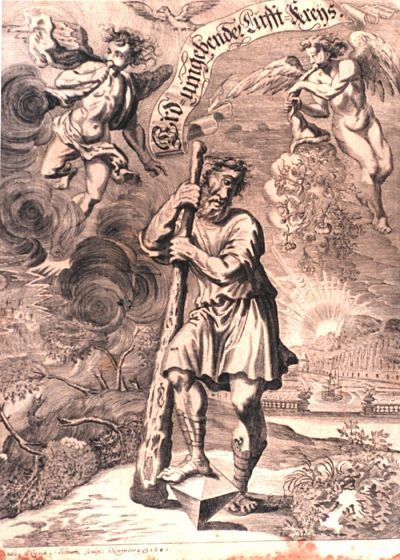 Our school is building a fence, though we are paying for it. The fence is defining where the school is and where it is not. The Bible has hero wall builders like Nehemiah and Homer writes a lot about walls and what they mean to civilization.
Our school is building a fence, though we are paying for it. The fence is defining where the school is and where it is not. The Bible has hero wall builders like Nehemiah and Homer writes a lot about walls and what they mean to civilization.
Civilized people are wall builders, while barbarians drift. Being civilized gives a person tools to find wisdom, practice greater virtues, and find joy in finding beauty. Civilization also fills a man with discontent, endless desires for more.
A bad man builds a wall to define who is out: the walls of Troy functioned that way. If you were outside, then you were not Trojan, but walls built for this reason always fail. The Trojans brought their own doom into the city. You cannot build a wall high or thick enough to stop a greedy fool from bringing in a gift from some Greeks.
However, civilized men and women also will build walls, because a good wall defines who we are not. As we fence in the land God has given us (for now), we are reminded that the rest is not ours. A civilized man creates limits and these limits give his neighbors rights. He is not fencing anyone out, good fences have good gates, but he is guarding against his own greed and expansionism.
There are worse men than the greedy wall builder. There is the narcissist who will accept no limits. Nobody is safe . . . all land is his land, all offices are his offices, and only he fascinates himself. His complaints cannot be heard enough, all tissues are for his tears, and every party is for his speechifying.
He has no law, no restraint, save the desire to be great and mighty.
Homer’s hero Odysseus meets these monstrous men who have no laws, customs, and no social norms beyond “might is right.” Each lawless cyclops does what he wishes, if he can. They accept no limits and so they live in caves, never farm, getting the food they can that the gods provide. They worship no particular god, looking to all gods for favors they require.
A cyclops lives for appetite and is rootless. . . Homer describes them as near a green and pleasant land, but they never make use of it because that would bring personal limits. They could possess great wealth, but they cannot work together to make the island flourish. Instead, they are content to live in their caves and herd their sheep.
An essential element to building and sustaining a great culture is learning to say no to my individual needs so that the community can make something greater than we could make as individuals. We give up our little pleasures to receive better joys. I stop grunting and howling, so that better voices can be heard and make sweeter music.
The cyclops cannot be fenced in….his ambition is global. The bad man fences himself in to keep others out . . . and fails. The good man limits himself with fences and makes a garden of his land . . . a green and pleasant land, because he loves the land.
As I left school today, I saw a teacher plowing our land for the first time. She is preparing to plant crops with students . . . making an empty field a garden. A few of our college students explored an abandoned “den” in some overgrown bushes in the center of the property. The fence has begun to define our limits and what we are not . . . so we can have neighbors! Our provost was hard at work on a shed so that our tools can be stored safely.
We are building a home, letting the limits imposed by the land, nature, and our strength civilize us.











